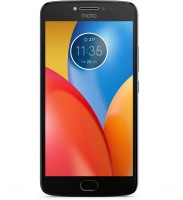Intel Optane SSD 800p 118GB Review
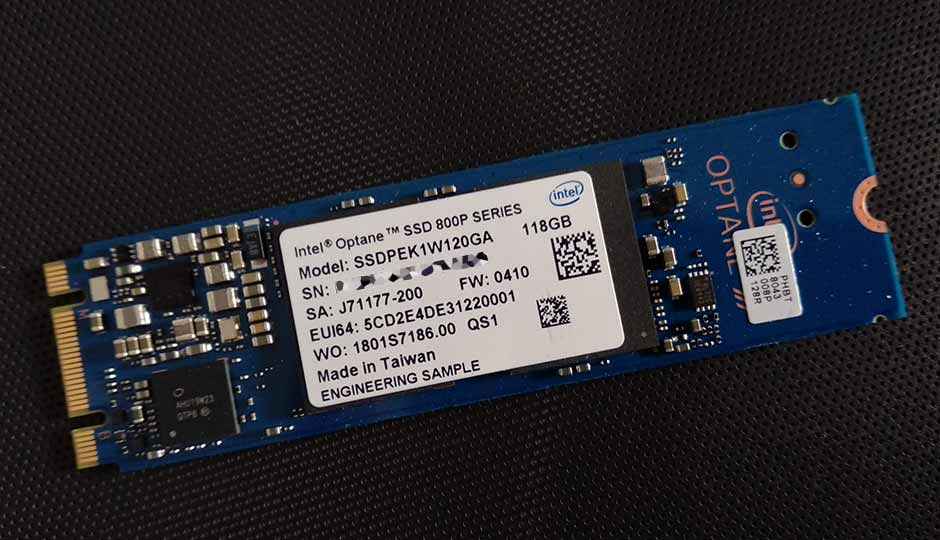
- 16299/-
Intel Optane SSD 800p 118GB Price in India
Intel Optane SSD 800p 118GB Rating 79100100
Our Verdict
The Intel Optane SSD 800p is a great contender in the SSD space. It’s unique since Intel is the only one with the Optane technology and they’re aggressively pushing for it across their platforms. With not many capacity options, it would seem that Intel is still testing waters with the Optane SSDs in the consumer segment. The enterprise offerings of things barely need convincing but the consumer side being more price-conscious would prefer Optane SSDs in higher capacities and with a better price tag.
PROS
- Consistent performer
- Excellent 4K read speeds
- High speeds post conditioning
CONS
- Expensive
- Capacities are too low
Intel Optane SSD 800p 118GB: Detailed Review
Intel has been actively pushing its Optane lineup globally for more than a year now. The initial devices were only available in low capacities unless you had really deep pockets and opted for the enterprise variants of the Optane drives. Nevertheless, Optane has come a long way since its initial days and they now show a lot of promise. Unfortunately, being a relatively new memory medium, Optane is still expensive. The Intel Optane SSD 800p comes in two capacities, the 58 GB SKU and the 118 GB SKU. We’re reviewing the latter and it retails in India for Rs.16,299. Yeah, Intel’s not winning in the value for money segment anytime soon but does the same hold true for the performance segment? Let’s find out.
Intel Optane SSD 800p
The Intel Optane SSD 800p is all Intel. That means, the controller and the memory medium are all manufactured by Intel. This gives them complete control over the quality of the chips that are used for the SSDs. They don’t reveal much about the controller except for the peak performance levels. It uses the NVMe protocol but with just x2 PCIe lanes because that’s all they need for the given capacities.
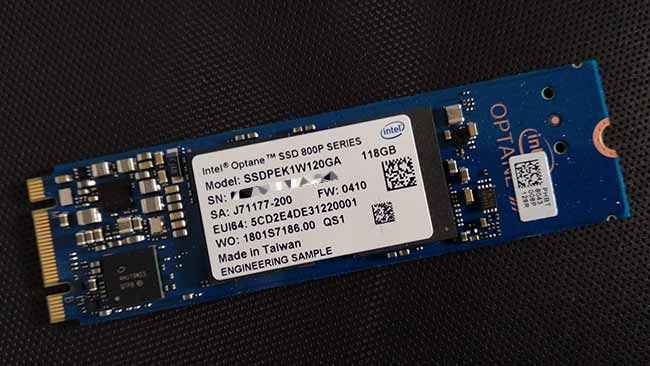
This means, you can use the Optane SSDs in the secondary NVMe slot on your motherboard as well. Those which tend to have x2 lanes owing to lane sharing. The primary slot tends to have x4 lanes which you can use for higher capacity SSDs.
On the hardware front we’re seeing an increased capacity and there has been significant improvements with the firmware as well, mostly with the power profiles. The 800p supports a lot power mode which not only helps with the power efficiency factor in desktops but the reduced active power makes it a great candidate for ULP systems that aim for higher on-time.
Performance
One of the things that the Intel Optane SSD 800p excels at is random 4k reads of low queue depths. Take any of the traditionally made SSDs and you’ll never see the performance numbers in more than double digits with 4K random reads, especially with low queue depths. The 800p on the other hand just blows up to about 570 MB/s in this test. Compared to the previous gen 760p, the 800p is miles ahead. In the same test, the 760p performed just as much as most mainstream drives such as the Samsung 960 Pro. In both tests, i.e. sustained workloads as well as bursty workloads, the 800p comes out ahead.
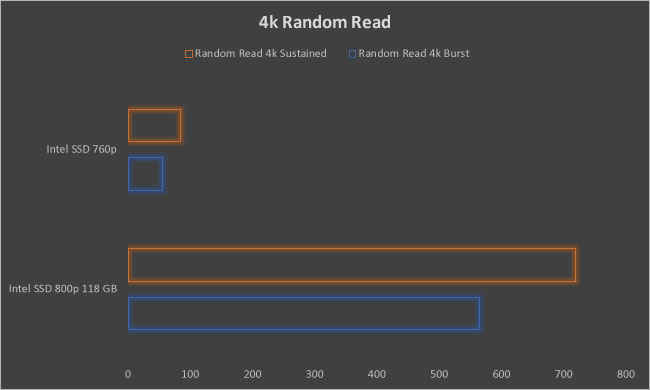
Moving on to 4k Random writes using the same file characteristics as above, we see a slightly different picture. The 800p is still ahead of the 760p but not by a wide margin. Write speeds are just about hitting 480 MB/s while the 760p is hovering around 140 MB/s. Both SSDs are more consistent in their write speeds in low QD 4k writes.
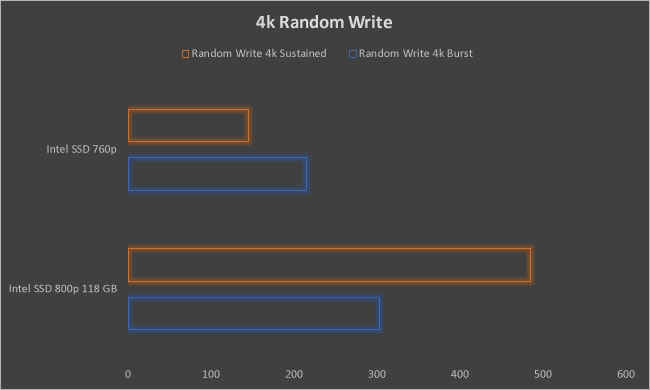
128k sequential tests generally cap out the read and write speeds of SSDs so you know what you can expect when you get one of these units. With the 800p, we see read speeds nearing 1400 MB/s which is quite high considering the 800p positioning according to price. The 760p on the other hand does very well with bursty workloads but suffers in sustained workloads. By suffers we mean to say that it performs like the average SSD in that price bracket. The 800p seems to be very consistent regardless of the workload type being sequential or bursty.
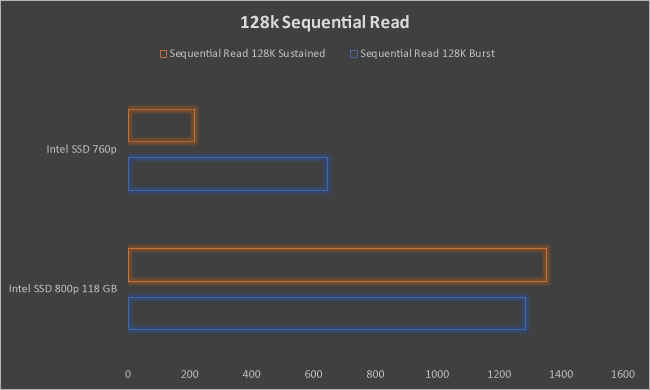
With the 128k workload set to write, we see the speeds come down to roughly half of the read speeds for the 800p. The 760p on the other hand is consistent with it’s read speeds. Regardless of the workload type, the 800p clocks in at about 600 MB/s in the 128k sequential write speeds.
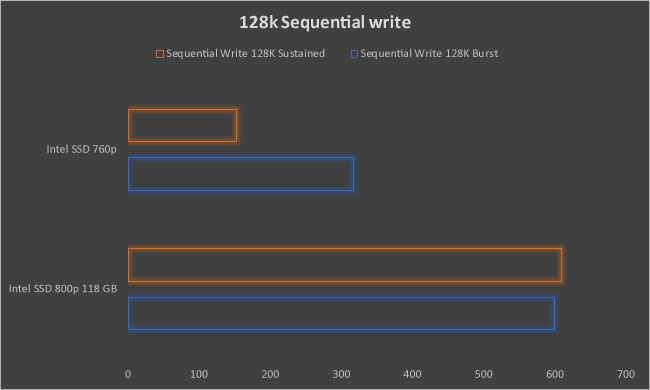
Mixed workloads are more indicative of how the drive will perform overall in day to day use. The 800p gives speeds of about 860 MB/s with sequential data and about 730 MB/s with random data. The 760p on the other hand is left far far behind.
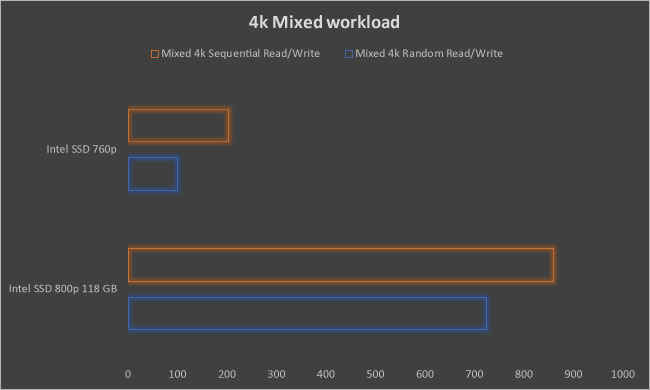
Intel certainly has a winner in their hands with the 800p. It’s rare to see an SSD’s performance not degrade massively post conditioning. Most drives would just come down to half of their advertised speeds post conditioning, however, the Optane based drives appear to power through. What would be interesting to see if how long can they go on with such high speeds. The drive sports a 5-year warranty period provided it averages 200 or fewer GB of data transfer per day, so it’s looking better than the competition anyways.
Pricing
Optane is a new medium and only Intel has it. Given the performance characteristics we’ve seen so far, especially the consistent speeds post conditioning, the 800p is quite the performer. However, the low capacity is discouraging. It’s better than the first gen drives in terms of capacity because you couldn’t even use a 32 GB drive for the boot drive but with 118 GB, there’s hope. At least you can now squeeze the OS onto it.
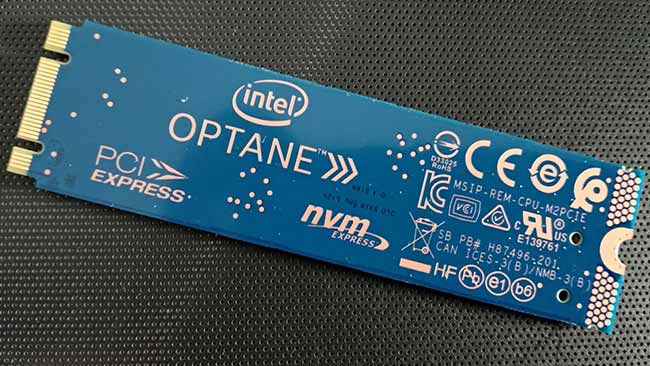
So in a way, the 800p does check most of the boxes when you’re considering a boot drive. However, we would still like for more space. Don’t we all?
Verdict
The Intel Optane SSD 800p is a great contender in the SSD space. It’s unique since Intel is the only one with the Optane technology and they’re aggressively pushing for it across their platforms. With not many capacity options, it would seem that Intel is still testing waters with the Optane SSDs in the consumer segment. The enterprise offerings of things barely need convincing but the consumer side being more price-conscious would prefer Optane SSDs in higher capacities and with a better price tag.
Other Popular Deals
 Acer unveils Nitro 5 gaming laptops with 8th Gen Intel Core i7, i7+ processors, Optane memory
Acer unveils Nitro 5 gaming laptops with 8th Gen Intel Core i7, i7+ processors, Optane memoryAcer has unveiled a new variant of its Nitro 5 series of gaming laptops. The new variant is available with 8th Gen Intel Core i7 and i7+ hexa core...
04 - Apr - 2018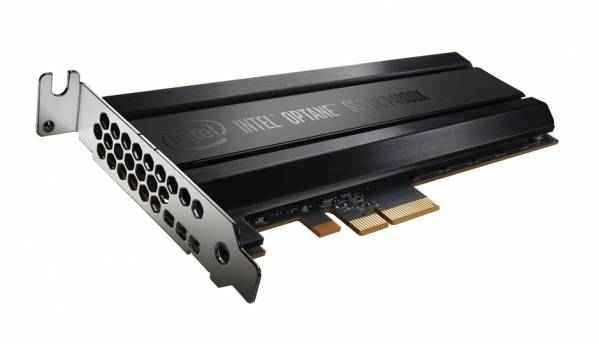 Intel's "next-gen" Optane SSDs are now shipping
Intel's "next-gen" Optane SSDs are now shippingJust last month, Intel Unveiled the new 3D XPoint based Optane SSD for the consumer and now the SSD's are ready for shipping. Initially only the...
21 - Apr - 2017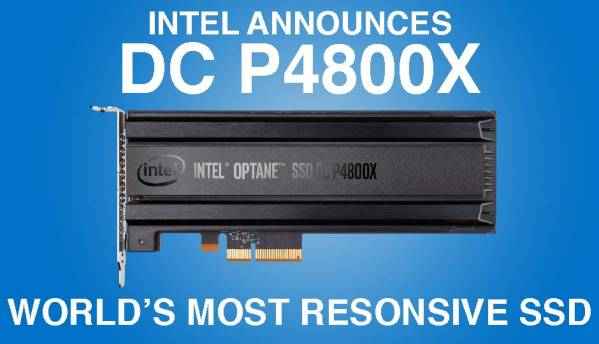 Intel announces the first Optane / 3D XPoint SSD - DC P4800X for $1520
Intel announces the first Optane / 3D XPoint SSD - DC P4800X for $1520We’ve been hearing quite a lot of chatter about the new non-volatile memory being developed by Intel and Micron together – 3D XPoint. And...
19 - Mar - 2017

Intel has been actively pushing its Optane lineup globally for more than a year now. The initial devices were only available in low capacities unless you had really deep pockets and opted for the ente...
---------------------------------------------------------------------------
Visit this link to stop these emails: http://zpr.io/PnAEp







